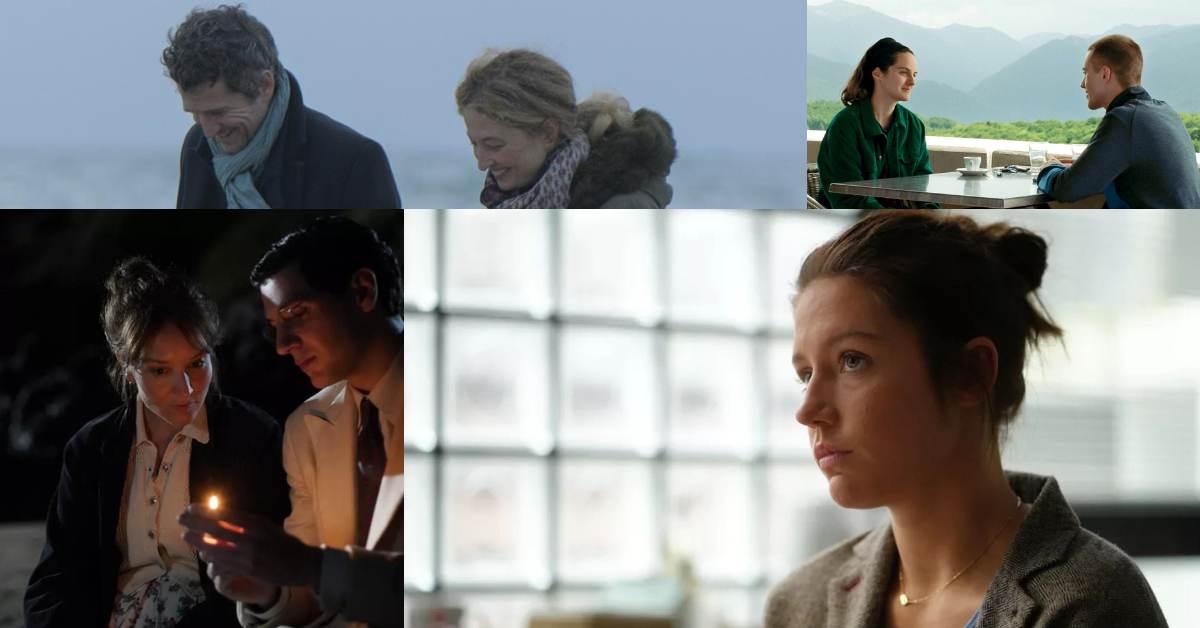A recap of the 2023 Cinemania Film Festival, which featured highlights like All Your Faces and Out of Season, disappointments like First Case and the Rapture, and some films in between, like Along Came Love.
Discover more great films from Cinemania.

Discover one film you didn’t know you needed:
Not in the zeitgeist. Not pushed by streamers.
But still easy to find — and worth sitting with.
And a guide to help you do just that.
When the pandemic hit and Montreal’s Cinemania Festival, a celebration of the year’s best francophone cinema, became available online across Canada, I discovered what has become one of my favourite festivals. Consider it Quebec’s version of Film at Lincoln Centre’s Rendez-vous with French Cinema, if perhaps more internationally-minded and with a healthy installment of Québécois cinema. Unfortunately, there’s no equivalent in the rest of Canada. Though festivals like Cinéfranco in Toronto and Rendez-vous in Vancouver do their best with some programming overlaps, they don’t have the breadth of programming. Cinémania is a chance to catch up on French-language titles from Cannes, Venice, and beyond, which might not have screened at less specialized fall festivals.
In past years, I’ve discovered wonderful under-my-radar films — which is saying something, as the EIC of a film site dedicated to under-the-radar discoveries — like Charlène Favier’s Slalom (2020), Caroline Vignal’s My Donkey, My Lover, and I (2020), and Julie Lecoustre and Emmanuel Marre’s Zero Fucks Given (2021), all of which played in Cannes sidebars. I’ve also enjoyed lesser films that were nevertheless showcases for my favourite established and up-and-coming French actors, like Freestyle (2022), a delightfully silly comedic vehicle for rising star Benjamin Voisin (Summer of ‘85, Man Up!, Proud, and Lost Illusions). To my knowledge, Cinemania is also the only North American festival to play my 2022 Cannes favourite Continental Drift (South), starring Montreal native Théodore Pellerin, which still doesn’t have distribution in Quebec or North America.
Two highlights: All Your Faces (Jeanne Henry) and Out of Season (Stéphane Brizé)
This year’s festival featured two major highlights. By far my favourite film of the festival, and one of my top 2024 world premieres was Stéphane Brizé’s beautiful second-chance romance, Out of Season, fresh off its premiere at Venice. You can read my review of Out of Season here. The film still hasn’t secured North American distribution despite starring Guillaume Canet and Alba Rohrwacher.
The debut feature from Jeanne Henry, All Your Faces, which will be released in 2024, was the other major highlight. An ensemble film about the restorative justice process is an important social realist film because of its subject matter. The film follows a group of three men imprisoned for violent crime and three victims of violent crime (by other perpetrators) as they prepare to meet and then gather monthly to discuss their experiences and heal for restorative justice. The film also follows a woman (Adèle Exarchopoulous), who was sexually assaulted by her brother, as she embarks on a journey for restorative justice when he is unexpectedly released from prison.
The plot of All Your Faces is schematic and mostly predictable, and you can feel the gears clicking into place. But Henry compensates for this with well-written, complex characters and excellent performances. It’s a film unafraid to tackle difficult issues while offering a novel way forward with a process that is increasingly talked about in leftist circles but is not necessarily widely understood.
Debut disappointments The Rapture and First Case
However, my overall batting average at Cinemania was a bit low this year, which is less a reflection of Cinemania’s programming than the films available under the constraints of pandemic filmmaking and “post-pandemic” recovery. First features Iris Kaltenbäck’s The Rapture and First Case had stellar casts — Hafsia Herzi and Alexis Manenti (of Les Misérables), and Noée Abita (Ava, Slalom, Genèse) and Anders Danielsen Lie (22 July, Oslo, August 31st, The Worst Person in the World), respectively. Both features were focused on the bad behaviour of a self-absorbed character who was not nearly as interesting or psychologically fleshed out as the film thought they were. They started out intriguing, but I quickly lost patience with both of them.
Soul Mates, A Silence, and Just the Two of Us by seasoned filmmakers
Likewise, André Téchiné’s incest drama Soul Mates, starring the always compelling Noémie Merlant (Portrait of a Lady on Fire) and Benjamin Voisin, was worth watching for their performances but not particularly thoughtful as a character study. I was even more disappointed by Joachim Lafosse’s A Silence, an unforgivably dull film about the family of a murderer coping with his actions – based on a well-known true story in France. Like The Rapture and First Case, none of the characters were noteworthy. Valérie Donzelli’s musical chronicle of a toxic marriage starring Virginie Efira, Just the Two of Us, was intriguing. Still, I struggled to get on the film’s wavelength (that might be more of a Me Thing than a problem with the film).
Katell Quilévéré’s Along Came Love
I was delighted that the festival programmed Katell Quilévéré’s Along Came Love, starring the always excellent Vincent Lacoste and Anaïs Demoustier. I was a big fan of her Heal the Living (2016) and Suzanne (2013). Although Along Came Love has some major flaws, it’s a well-directed, well-acted piece that I’m glad I could see. A period piece set in the years after World War II, the film tries to juxtapose two era-specific feelings of shame which two people try to recover from by entering into an unfulfilling marriage: a woman who had an affair with a Nazi during the war, leaving her pregnant and branded as a collaborator, and a queer man hiding his sexual identity.
Quilléveré is more successful in her story of Madeleine (Demoustier), perhaps because it’s the story closest to her. Madeline’s story is based on Quilléveré’s grandmother after World War II, and it’s not something I’ve previously seen depicted on screen. Early sequences that blend archival footage with footage shot for the film are hugely impactful and seamlessly integrated. Quilleveré is less successful in the story of François (Lacoste), a wealthy academic and queer man who loves but doesn’t desire his wife and hates himself. His story feels like a retread of other stories of queer oppression at the time, and there’s a particularly ill-advised sexual encounter that the couple share with a Black man with creepy colonial undertones; they both essentially treat him as a sex object, and the film doesn’t do much better. Still, it’s always a pleasure to watch these two performers act.
Related reading/listening to Cinemania 2023
More French Cinema: Read our recent French Cinema coverage.

